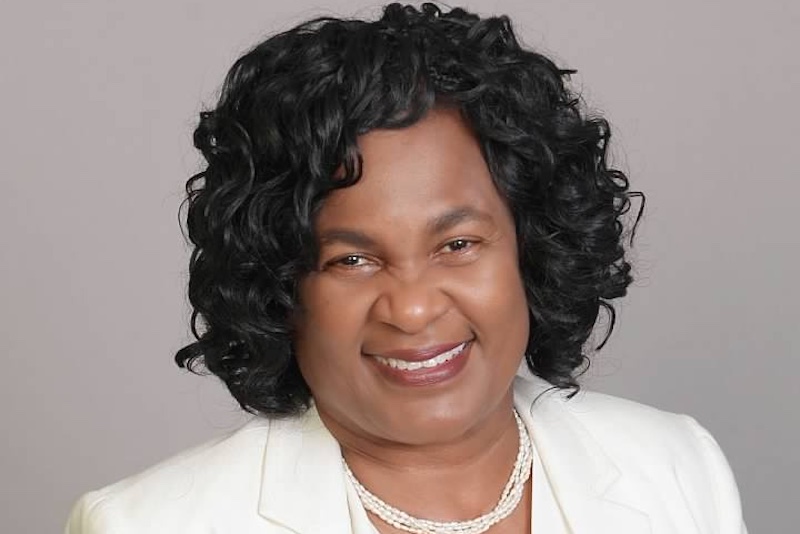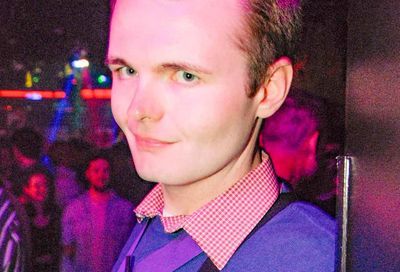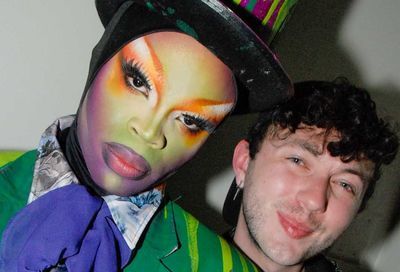Keeping Up with AIDS 2012
Conference continues in the convention center, in the streets and in the spotlight
Though the official start for the XIX International AIDS Conference – marking the conference’s return to the U.S. after a 22-year absence due to the now-repealed HIV travel ban – was Sunday evening, July 22, at the Walter E. Washington Convention Center, there was an unofficial kick-off of sorts Thursday, July 19. That’s when Health and Human Services (HHS) Secretary Kathleen Sebelius – perhaps deflecting some of the criticism aimed at President Obama after the White House said he’d be making only a video appearance at the conference – announced that the Obama administration will invest nearly $80 million in grants to increase access to HIV/AIDS care across the United States, a move expected to eliminate AIDS Drug Assistance Program (ADAP) waiting lists.
”The entire administration is dedicated to fulfilling President Obama’s goal of an AIDS free generation and today’s announcement is one more step in that ongoing effort,” Sebelius said in a July 19 statement. ”These grants will help make a real difference in the lives of Americans living with HIV/AIDS, especially those in underserved communities.”
The next day, D.C. played host to the July 20 to 21 Gay Men’s Health Summit, which, while not an AIDS 2012 event, was likely boosted by the international conference. If nothing else, it allowed for some interaction with the Global Forum on MSM (men who have sex with men) and HIV, held Saturday, July 21.
That same evening, and still ahead of that official start, the Human Rights Campaign made a showing with an AIDS 2012-related panel on HIV and stigma at its downtown headquarters. Along with HRC, that panel was co-sponsored by organizations who’d be making their own showings through the conference: International Association of Physicians in AIDS Care, the Pan American Health Organization and the International Treatment and Preparedness Coalition. Despite some jarring data – particularly with regard to murders of transgender women – Chloe Schwenke closed the panel with some uplifting words about her work with the U.S. Agency for International Development.
”Our approach right now to LGBT health and human rights is that, it’s both,” she told the audience. ”It’s not just a health challenge. It’s a human rights challenge. We’re there. We’re there in both of those areas. We’re there with strong and unequivocal messages about the importance of human dignity and human rights. That’s a language we’re not afraid of.”
On Sunday, still ahead of the AIDS 2012 opening session, attendees and locals took to D.C. streets and the grounds of the Washington Monument for the “Keep the Promise” rally and march. The rally, emceed by actress and comic Margaret Cho, featured a number of prominent figures, such as the Rev. Al Sharpton, activist Cornel West, and Haitian-American singer Wyclef Jean. Among the “call to action” points released by Keep the Promise advocates were lower prices for AIDS drugs globally, and “leveraging treatment as prevention in concert with a scale-up of rapid HIV testing and access to care.”
At Sunday’s official opening session, Elly Katabira, chair of the conference and president of the organization that presents it, the International AIDS Society, helped set the week’s tone, saying, ”Our return to the United States after a 22-year absence comes at a time of extraordinary hope, a time when we believe that the end of the AIDS epidemic is possible.”
At a smaller Sunday session, Ugandan LGBT-rights activist Frank Mugisha was among the thousands of conference delegates contributing to the dialogue. On his particular panel, he told of his country’s struggle to counter the effects of homophobia, particularly when it comes to HIV detection and treatment. Because of the emphasis placed on the incidence of HIV among MSM, as well as abstinence-only education and the criminalization of homosexuality in Uganda, the HIV epidemic among homosexual men has been exacerbated and driven underground.
On Monday, July 23, Secretary of State Hillary Clinton’s AIDS 2012 speech may have given Mugisha hope.
”In low- and middle-income countries, studies suggest that HIV prevalence among men who have sex with male partners could be up to 19-times higher than among the general population,” Clinton remarked. ”Now over the years, I have seen and experienced how difficult it can be to talk about a disease that is transmitted the way that AIDS is. But if we’re going to beat AIDS, we can’t afford to avoid sensitive conversations, and we can’t fail to reach the people who are at the highest risk.
”Unfortunately, today very few countries monitor the quality of services delivered to these high-risk key populations. Fewer still rigorously assess whether the services provided actually prevent transmission or do anything to ensure that HIV-positive people in these groups get the care and treatment they need. Even worse, some take actions that, rather than discouraging risky behavior, actually drives more people into the shadows, where the epidemic is that much harder to fight.”
Support Metro Weekly’s Journalism
These are challenging times for news organizations. And yet it’s crucial we stay active and provide vital resources and information to both our local readers and the world. So won’t you please take a moment and consider supporting Metro Weekly with a membership? For as little as $5 a month, you can help ensure Metro Weekly magazine and MetroWeekly.com remain free, viable resources as we provide the best, most diverse, culturally-resonant LGBTQ coverage in both the D.C. region and around the world. Memberships come with exclusive perks and discounts, your own personal digital delivery of each week’s magazine (and an archive), access to our Member's Lounge when it launches this fall, and exclusive members-only items like Metro Weekly Membership Mugs and Tote Bags! Check out all our membership levels here and please join us today!























